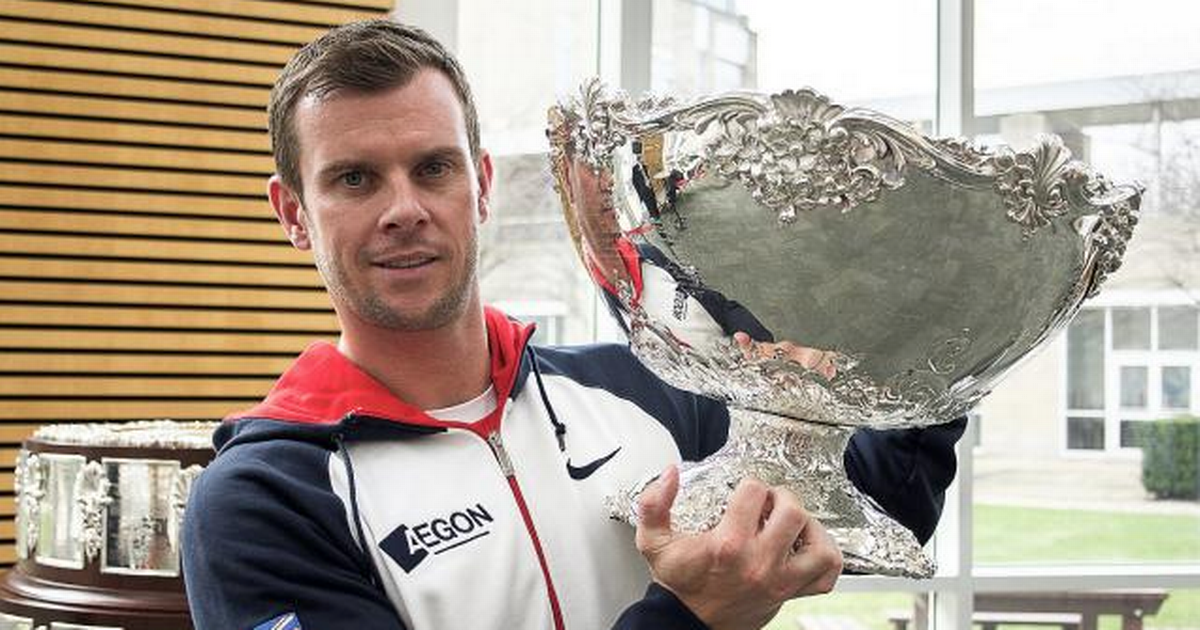At the Livingston James Group, our purpose is:
‘We are here to advise and support people and organisations to realise their potential so that together we can impact lives and communities for the better’.
As such, we were delighted to welcome Leon Smith, Head of GB Men’s Tennis and Davis Cup Captain to lead a Recognising and Realising Potential Workshop for a selection of Rutherford Cross clients. The workshop focused on leadership during a crisis and recognising and realising potential, relating techniques used in the world of high-performance sport to the business world.
A group of CFOs and Finance Directors from a variety of medium and large businesses and a cross section of sectors including FMCG, Construction, Manufacturing, Healthcare and Technology attended. Here we share insights from the Workshop.
Leon recalled taking up the Davis Cup Captain role 10 years ago when GB were at their lowest ebb and in a period of crisis, somewhat similar to where many businesses find themselves today. During Leon’s first 100 days he talked to the team about what had been going well, what hadn’t, and what could be done about those aspects. Leon rebuilt his team around three key foundations: Preparation, Communication and having the right Team Dynamics.
This involved making sure that his team was very well prepared for matches, ensuring that he had an increased knowledge of how players were performing, and improved communication, whilst creating an environment where the team was motivated, inspired, and enjoyed working together. Upon these foundations is where the marginal gains could be found.
Leon then discussed how the team shifted its focus from the outputs of the talent they were assessing such as their results, to the inputs that generated these successful outputs – the causes and influences that make a top performer. These ranged from what surface a player developed their game on to whether they moved abroad as key inputs into making a top player.
Finally, Leon discussed the use of data vs gut feel when identifying and developing talent in his team. The LTA have developed an App that their team of coaches use to record the performances of a potential player that they are considering investing in. This assesses a wide range of attributes from the players tenacity and concentration to tactical awareness, and is assessed multiple times by multiple coaches to form a more factual view on how a player is developing and what their potential is.
Relating this to the business world and in particular, to how a leader recognises and in turn helps realise the potential of their team, three questions were put to the group. We summarise their responses below.
How has your leadership style evolved over the last 12 months?
The Leaders on the Workshop reflected that they have had to be more empathetic with their team members over the last 12 months and also be much more flexible than ever before. Despite having been stretched to beyond full capacity it is still important for a Leader to remain calm whilst also being honest about how you are feeling. Leading by example has been key whilst also rewarding and recognising your teams’ efforts and sacrifices.
There was discussion about breaking down the barriers between the ‘professional and personal you’. Inside and outside of work you should be the same person. It might sound obvious, but the CFO needs to display real human qualities and perhaps have conversations with their team that they wouldn’t have had prior to this crisis. Communication with your team is crucial but does not only include informing them but also means listening to them more than ever.
Managing expectations about when and how the return to the office will look is pertinent right now. Consulting and listening to your team is paramount on this and some businesses have asked for volunteers once it is safe to head back in whenever that might be later this year. Finally, be prepared for some of your team members to be reassessing and reflecting what they want to do in the future beyond this period. There may be a number looking to change how they work and live.
What do you believe are the key qualities of a successful leader?
Whilst recognising it is still about delivering results, the behaviours behind the results of the leader and their team are key. Empathy and the human qualities were highlighted as key traits of a leader during this time of crisis. It is also vital to display consistency and calmness under pressure. Being a strong communicator is essential, but this means not just informing but also listening to your team.
A leader has never had to be more flexible and must also have the energy to meet the workload so looking after yourself has never been more important. Put focus times or future planning sessions into your diary. It is also important to continue to develop yourself as a leader. The last 12 months have given many leaders the time to stop, pause and reflect in a way that they have not done before and have used this time to self-reflect. Some have used 360 appraisal feedback and then tapped into appropriate self-development training and courses or have worked with mentors.
Finally, rewarding your team and displaying gratitude is a very important leadership quality required to support your team during these challenging times.
When developing or identifying talent in your team which is more important, data or gut feel?
Both are crucial ingredients in the recognising and realising of potential with gut feeling often being the most important as long as evidence and data is part of the overall process. Especially during this period of lockdown there appears to be less time for a data led approach to recognising potential. In identifying talent the emphasis is very much on team fit with ‘Fit Interviews’ gauging an individuals’ cultural and values fit to the team and overall business.
Also engaging a cross section of the management team during such interview processes can help obtain the right result. This is similar to the ‘multiple eyes multiple times’ method that the LTA use to evaluate aspiring tennis talent in the UK that has seen significantly improved results for British Tennis in recent years.
In developing existing talent, data can come from 360 appraisals, customer feedback and also an individuals’ behaviour during a specific task. The need to develop a relevant and specific template for your workplace could help capture the right data to be used to support decisions that might previously only have been based on intuition. The overall feeling from the CFO/FDs on the Workshop is that gut instinct is more important, but it can be highly valuable if there is data available to support.
To conclude, the leadership qualities Leon used to build what has ultimately been a world beating team included;
- Setting a vision
- Meticulous preparation
- Humility
- Emphasis on team dynamics and value fit
- Respect
- Flexibility
- Two-way communication
- Empathy
There are many parallels between the assessment and development of top talent in high performance sport that can be utilised in business, such as ensuring the right foundations are in place for your team to develop, looking more at inputs that lead to high performance than focusing only on outputs and making sure there is more of a data led approach to the assessment of our own and our teams’ abilities in order to allow their full potential to be realised.
Combining these leadership qualities with an ever-increasing use of data to support gut feeling on selection and other key decisions appears to be the way ahead for not only CFOs and Finance Directors but also for all leaders of the future.
For more information on this or other Rutherford Cross events, contact [email protected]







